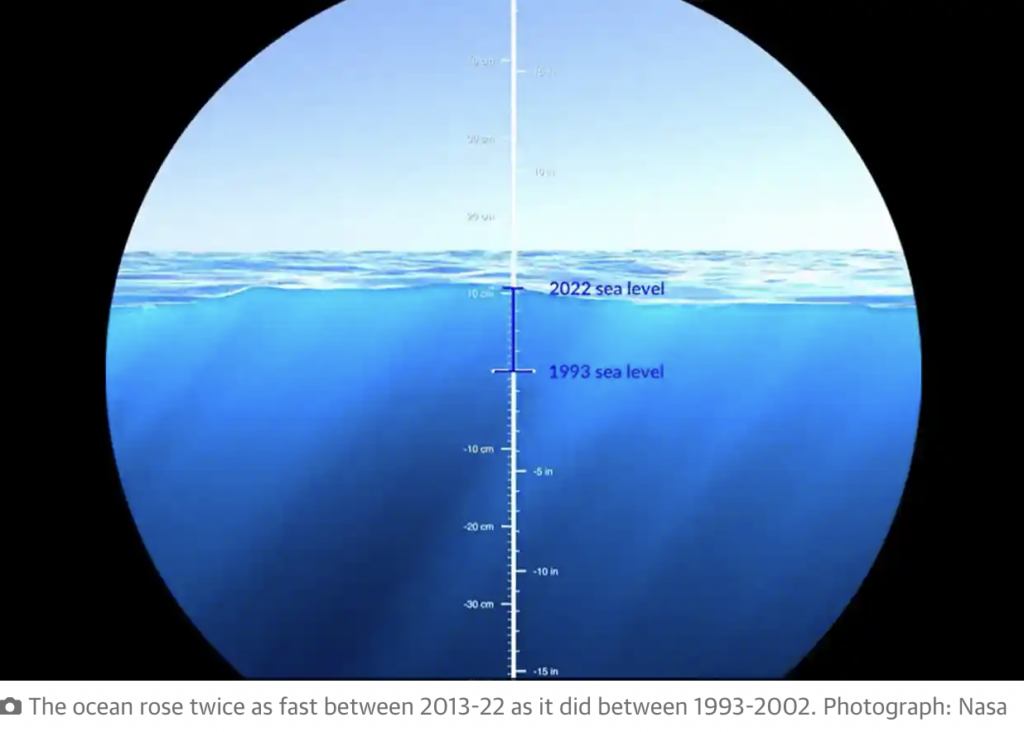Le Penseur
Well, not quite what Rodin had in mind, but what the hell.
Quote of the Day
“What makes the war on terror different from other wars is that victory has never been based on achieving a positive outcome; the goal has been to prevent a negative one. In this war, victory doesn’t come when you destroy your adversary’s army or seize its capital. It occurs when something does not happen. How, then, do you declare victory? How do you prove a negative? “
- Eliot Ackerman, write in Foreign Affairs in his reflections on being a CIA agent.
Musical alternative to the morning’s radio news
MonaLisa Twins | Mercedes Benz | (Janis Joplin Cover)
Long Read of the Day
Demographics drive history
That, at any rate, is my reading of this absorbing essay by Yi Fuxian of Project Syndicate.
The deterioration in US-China relations is ultimately due to the bilateral trade imbalance and to US frustration with Chinese politics. Both can be traced back to China’s one-child policy, which was in place from 1980 to 2016.
When Western leaders welcomed China into the World Trade Organization in 2001, most assumed that they were creating the conditions for eventual democratization. A growing Chinese middle class, they assumed, would demand greater accountability from the government, ultimately creating so much pressure that the autocrats would step aside and allow for a democratic transition. This political fantasy underpinned the Sino-American relationship for decades.
But it wasn’t to be. The Communist Party of China (CPC) has been regressing on all fronts, reasserting more top-down control over the economy and tightening censorship and other forms of social and political control. It has been led down this path by the legacy of the one-child policy, which fundamentally reshaped the country’s demographics and economy…
I learned a lot from this, which is why I think it’s worth your attention. It also helps to explain why we in the West have so often been wrong about China.
The best and worst case scenarios for sea level rise
Bad news for future generations (and indeed some current ones too) in this Guardian ‘explainer’.
Part of the problem is the that even if the world stopped emitting greenhouse gases immediately – which it will not – sea levels would continue to rise. Even in the best-case scenario, it’s too late to hold back the ocean.
The reason for this is not widely known, outside the science community, but is crucial. The systems causing sea level rise – specifically, the thermal expansion of the ocean and the melting of glaciers and ice sheets due to global heating – have a centuries-long time lag.
My commonplace booklet
Musée des Beaux Arts
WH Auden, 1938.
About suffering they were never wrong,
The Old Masters: how well they understood
Its human position; how it takes place
While someone else is eating or opening a window or just walking dully alongHow, when the aged are reverently, passionately waiting
For the miraculous birth, there always must be
Children who did not specially want it to happen, skating
On a pond at the edge of the wood:
They never forgot
That even the dreadful martyrdom must run its course
Anyhow in a corner, some untidy spot
Where the dogs go on with their doggy life and the torturer’s horse
Scratches its innocent behind on a tree.In Brueghel’s Icarus, for instance: how everything turns away
Quite leisurely from the disaster; the ploughman may
Have heard the splash, the forsaken cry,
But for him it was not an important failure; the sun shone
As it had to on the white legs disappearing into the green
Water; and the expensive delicate ship that must have seen
Something amazing, a boy falling out of the sky
Had somewhere to get to and sailed calmly on.
I’ve always loved this poem. What brought it to mind today was the contrast between Western media’s obsession with the Titan submersible at the same time that they were paying little attention to the sinking of the migrant boat off the coast of Greece.
Errata
Contrary to my claim in Monday’s edition that Ed Fredkin, the great computer scientist, had died at the age of ’1988’, he was in fact a mere 88 years of age. Apologies to all, and thanks to the readers who tactfully pointed this out.
This Blog is also available as an email three days a week. If you think that might suit you better, why not subscribe? One email on Mondays, Wednesdays and Fridays delivered to your inbox ay 6am UK time. It’s free, and you can always unsubscribe if you conclude your inbox is full enough already!


